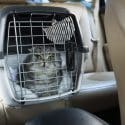You've been thinking about it for some time and you finally decide to take the plunge, but how can you be sure you're making the right choice? Every day, advertisements of puppies and kittens for sale appear on numerous websites. Even with a recommendation from a friend or a family member, you must always make sure to choose a breeder who has the health of his animals at heart. Here are some tips to guide you in your choice:
Is your breeder registered?
We often hear about registering in the animal world. But what does that really mean? A breeder can register with the Canadian Kennel Club or another registry that is recognized by the FCI (Fédération Cynologique Internationale). To do so, the breeder must respect certain previously established criteria and thus qualify in order to obtain his certification. The criteria established by the Canadian Kennel Club and the FCI have been put in place for the health of the animal and to maintain optimal genetics for the breed. By choosing a registered breeder, you make sure to minimize genetic problems related to the breed you have chosen.
Did you meet the parents?
Any breeder who claims to be responsible should introduce you to your puppy's parents when you first meet. If you visit a breeder but you do not have access to the parents of your future companion, do not adopt the animal. By seeing the environment where the mother takes care of her babies, as well as the general conditions of the place, you can get a better idea of the type of breeder you will be dealing with.
Have the parents been tested for hereditary problems?
In order to ensure that a healthy puppy is given, breeders must test the parents for any type of breed-related problem. For example, a German Shepherd breeder should have the parents tested to make sure they don't have hip dysplasia and thus make sure their puppies won't develop it either. If your breeder has had their breeding animals tested, they can provide you with proof of the results before you adopt your puppy.
How many litters does the female have per year?
To ensure the female’s good health, she should not be bred more than once a year. She must also be fully grown before beginning mating. Be sure to ask the right questions to your breeder to help you make an informed choice.
Did your breeder ask you questions before the adoption?
A responsible breeder makes sure to send the puppy to the right family. Some dog breeds are not suitable for all types of families. By making sure to ask the right questions, breeders can refuse certain families that may not be suitable for the breed, whether it’s a question of lifestyle, physical activity needs or the environment where the puppy will grow.
Has your puppy received his first vaccinations?
Normally, when you pick up your puppy (around 8 to 10 weeks old), he should already have had his first basic vaccinations and dewormers. Be sure to ask the breeder for proof of vaccination before bringing your pet home.
Did you sign a contract?
A contract explaining the terms of sale must be signed before your puppy arrives home. Some breeders will add a clause for mandatory sterilization by the buyer, to ensure that the animal will not be used for breeding. By signing a contract, you have written proof of the breeder's certification, the tests performed on the parents, and the vaccines and dewormers given to your pup. This way, there is no ambiguity.
How old should your puppy be when leaving?
Puppies should not leave the family nest before they are 8 weeks old. For small breeds, 10 to 12 weeks of age is optimal. Check the health record that your breeder will give you to make sure you have the correct information.
Have you received registration papers?
The breeder who has registered his breeding dogs must also register his puppies. You should receive the registration papers a few months after the adoption or after its sterilization (to be checked with your breeder beforehand).
You are now ready to choose your breeder! Be sure to determine the type of dog that will best suit your lifestyle, then check out registered breeders for that breed. You can find a list of Canadian Kennel Club registered breeders, categorized by dog breed in our Useful Links section.
Source : https://www.uecq.ca/news/comment-reconna-tre-un-leveur-responsable





